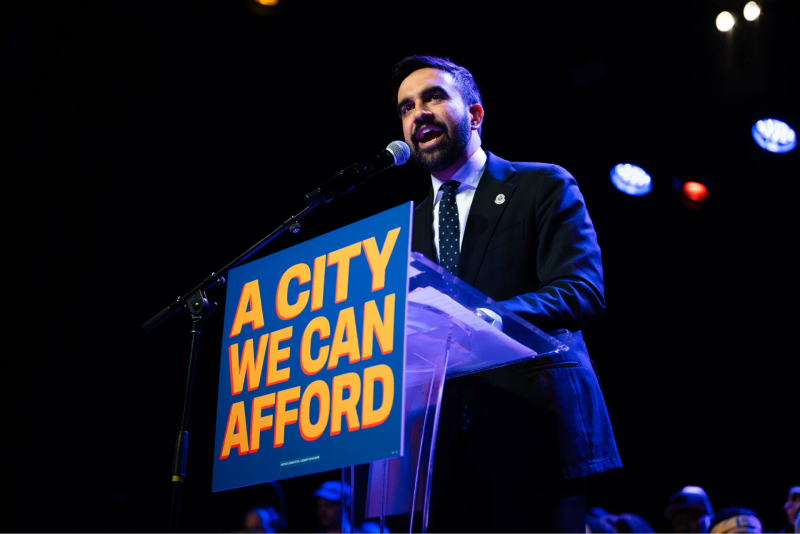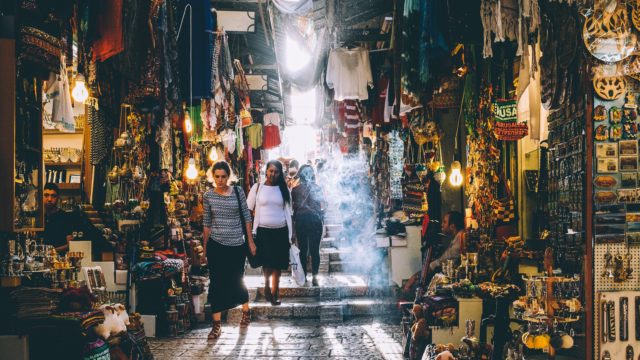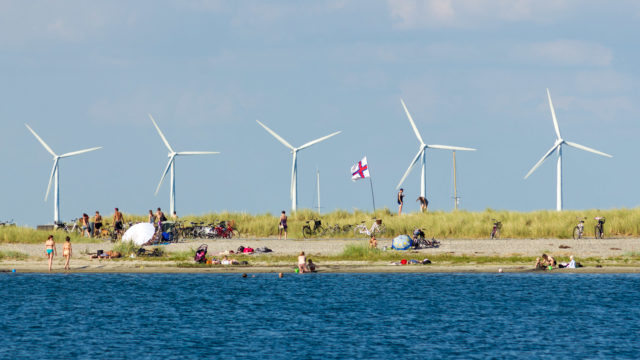Zohran Mamdani’s green economy vision is what NYC needs
A climate justice campaigner and NYC resident reflects on the primary victory of Zohran Mamdani and his message of progressive green change

In New York City, conversations about the “green economy” too often feel far removed from the everyday lives of the people who need change most.
Climate policy gets pushed into technical jargon or global targets that feel far off or out-of-reach. Meanwhile, public school students sit in sweltering classrooms, transport is expensive and unreliable, and working families are squeezed between rising rents and plateauing wages. New York City is unsustainable - not just from an affordability perspective.
Last week, however, Zohran Mamdani won the Democratic Primary for Mayor of this great city and is likely to become the next New York City Mayor. He is offering a different vision to the previous administration (and the current Democratic leadership) - one where climate action is neither abstract nor optional, but immediate, material, and rooted in equity.
“ Mamdani’s plan may sound ambitious, but it’s also pragmatic. It reflects the growing recognition that the climate crisis is not only an environmental issue, but a social and economic one too.”
An affordable - and sustainable - city
Just one example is his green economy plan, which isn’t just about cutting emissions - it’s about making the city livable and affordable for those who have long been pushed to the margins. He has energized both young people and garnered surprising support from some more affluent communities too.
At the center of his platform is a proposal to retrofit 500 public schools with rooftop solar, modern HVAC systems, and green spaces. Fifty of these schools would become resilience hubs - places where we can shelter during heatwaves or floods. It’s a climate policy, yes, but it’s also an education policy, a public health plan, and a jobs programme. Mamdani estimates this initiative alone could create 15,000 jobs.
This is what sets his approach apart. It links climate with comfort,
clean air with classroom quality, and carbon reduction with economic
recovery. For Mamdani, sustainability isn’t a silo, it’s a strategy.
Action on energy
He applies the same logic to public power. Mamdani has backed the Build Public Renewables Act and campaigned against new fossil fuel infrastructure, including the Astoria peaker plant. He’s not just opposed to fossil fuels; he’s making the case for public ownership of the energy system itself. When the public controls energy, we can plan for long-term resilience, ensure affordability, and make decisions in the public interest, not for private profit.
The framing of climate action as a public good is consistent across his platform. Take housing, Mamdani wants to build 200,000 rent-stabilized, green homes in transit-accessible neighborhoods. He’s not talking about eco-luxury condos. He’s talking about sustainable, affordable housing that prevents displacement and keeps New Yorkers rooted in their communities.
Or consider transport. Mamdani piloted fare-free buses in the borough of Queens (which he currently represents in the New York State Assembly), which led to a 30% increase in ridership and a drop in assaults on drivers. He wants to expand that across the entire city. Again, this is climate policy that doubles as cost-of-living relief, and it’s resonating with voters.
Ambition with pragmatism
Critics are asking how he will pay for all this. Mamdani’s answer is clear: progressive taxation. He proposes raising corporate taxes, yes, but not to some scary level that most Republicans and a frightening number of powerful Democrats would have you believe. Mamdani instead proposes to simply match corporation tax rates of our neighbors, New Jersey, which is hardly a communist state, and introduce a modest tax on New York’s millionaires.
It’s a fair question of priorities. Should public money continue to subsidize luxury developments and private energy companies, or should it build schools, homes, and buses that serve the public?
Mamdani’s plan may sound ambitious, but it’s also pragmatic. It’s grounded in policies that already have proof points - fare-free transit, green school retrofits, infrastructure, and public power. It reflects the growing recognition that the climate crisis is not only an environmental issue, but a social and economic one too.
We often discuss the green economy as if it were something that’s coming in the distant future. Mamdani has reminded us that it’s something we can start to build now. A greener city is only worth fighting for if it’s also more just, more affordable, and more livable for all.
- Stephen Brown is a NYC resident and climate justice campaigner


